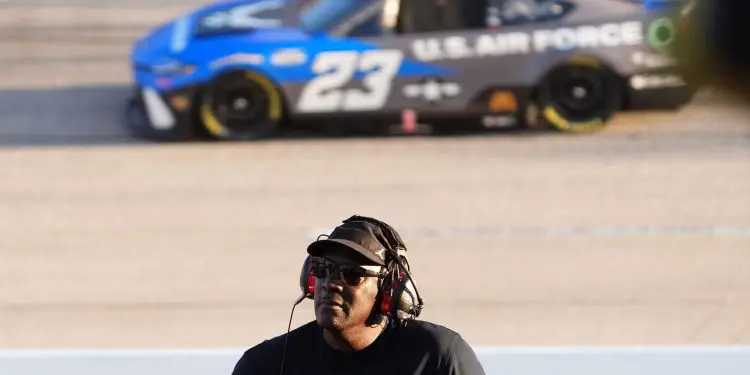NASCAR finds itself in the crosshairs of a seismic legal battle that could shake the sport to its very foundations. 23XI Racing and Front Row Motorsports have launched a bold lawsuit accusing NASCAR of monopolistic practices tied to its charter and revenue-sharing systems. The implications of this case are monumental, with potential ripple effects threatening to upend the league’s financial and operational framework.
This isn’t just a court case—it’s a David vs. Goliath showdown, challenging the authority of the France family, who have tightly controlled NASCAR since its inception in 1948. At stake is nothing less than the future of the sport itself.
A system under fire
At the heart of the controversy is NASCAR’s charter system, introduced in 2016 to stabilize team finances and ensure long-term investments. The system guarantees teams entry into every points race and secures revenue-sharing benefits. However, teams argue that the system locks them into a rigid financial model, controlled entirely by NASCAR, which dictates costs, including parts for the Next Gen car.
For smaller teams, these measures maintain parity. But for powerhouse organizations like Hendrick Motorsports and Joe Gibbs Racing, the restrictions are seen as handcuffs, limiting their ability to leverage their resources. If the lawsuit succeeds, the charter system could be dismantled, unleashing a free-market spending spree—but at the cost of destabilizing smaller teams.
Brad Keselowski and NASCAR’s looming crisis
Few understand the stakes better than Brad Keselowski, 2012 Cup Series champion and co-owner of RFK Racing. Speaking on Business of Motorsports, Keselowski didn’t mince words, calling the lawsuit a “significant threat” to NASCAR’s future.
“The charter lawsuit dispute between 23XI, FRM, and NASCAR is a significant threat to all of NASCAR, which transcends the Cup Series,” Keselowski warned.
His concerns are echoed by NASCAR insider Bob Pockrass, who highlighted on Beating and Banging how the lawsuit could dismantle the current cost-control measures tied to the Next Gen car.
“Theoretically, if the lawsuit succeeds, the fixed-cost model could disappear, allowing teams to spend as much or as little as they want on cars,” Pockrass explained.
While this may seem like a win for well-funded teams, it risks creating a massive financial chasm, potentially forcing smaller teams out of the sport altogether.
Could NASCAR abandon the charter system?
In a surprising twist, Pockrass revealed that NASCAR might consider eliminating the charter system altogether.
“During the hearing the other day, it was said NASCAR would be willing to go without charters entirely,” Pockrass disclosed.
If this happens, it would undermine teams’ multimillion-dollar investments in charters. Recent transactions, such as Spire Motorsports’ $40 million purchase from Live Fast Motorsports, underscore the stakes for teams who rely on charters as financial assets.
Without the safety net of charters, NASCAR could return to a chaotic free-for-all, where only the wealthiest teams survive. This uncertainty has stakeholders anxiously monitoring developments ahead of the pivotal May 2025 hearing.
What’s next for NASCAR?
For now, NASCAR operates in a precarious limbo. While most teams signed the league’s revised charter terms in 2024, the ongoing lawsuit by 23XI Racing and FRM looms large. Should the plaintiffs prevail, NASCAR’s carefully constructed balance of competition and financial stability could be blown apart.
For the France family, this is more than a legal battle—it’s a fight to preserve their legacy. For teams, it’s a shot at autonomy. And for fans, it’s a potential turning point that could redefine NASCAR as we know it.







